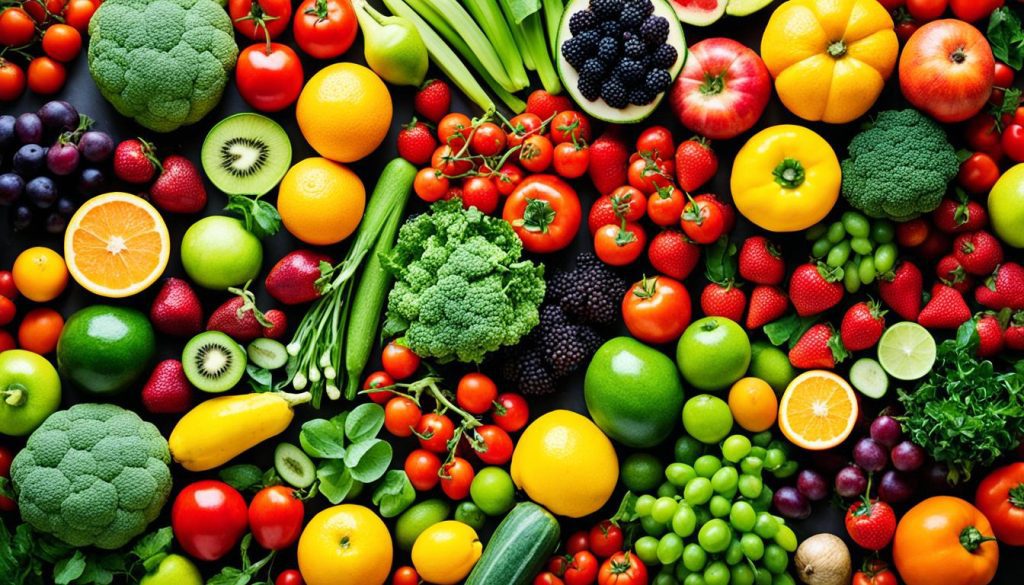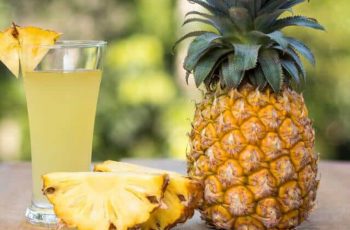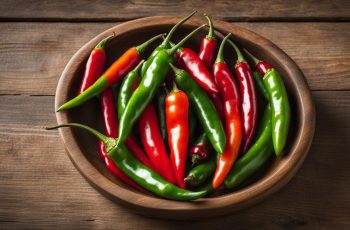Are you concerned about the health risks posed by pesticides in your food? You’re not alone. With studies linking pesticides to reproductive issues and potential cancer risks, many people are seeking organic, pesticide-free options for a natural and healthy diet. In this guide, I will provide you with an overview of organic food options and pesticide-free products, helping you make informed choices that prioritize your health and well-being.
Discover Foods That Are Pesticides Free
- Choose organic food options to reduce exposure to pesticides and synthetic chemicals.
- Look for certifications and labels like the USDA organic badge and Non-GMO Project label to ensure pesticide-free and GMO-free foods.
- Refer to the Environmental Working Group’s Dirty Dozen and Clean Fifteen lists to prioritize fresh and pesticide-free produce.
- Support organic farming practices for sustainable and environmentally friendly agriculture.
- By making conscious choices, you can promote a healthier lifestyle and contribute to a cleaner, pesticide-free food system.
Understanding Pesticides and Their Residues
Pesticides play a crucial role in protecting crops from pests, diseases, and weeds. However, it’s important to understand that they leave residue on the produce, which can have negative impacts on human health and the environment.
Regulatory bodies like the EPA and USDA set tolerance levels for pesticide residues in food, but it’s essential to note that these legal limits may not guarantee safety for everyone. Extended pesticide use can contaminate waterways, soil, and even human bodies, especially those working in agriculture.
To promote a pesticide-free diet and reduce our environmental impact, it is important to explore eco-friendly and non-toxic food options that are produced using pesticide-free farming practices.

By choosing eco-friendly produce and non-toxic food, you can minimize your exposure to harmful chemicals and contribute to a safer and healthier food system. Opting for chemical-free eating is not only beneficial for your well-being but also for the planet. Supporting pesticide-free farming practices helps preserve the environment and encourages sustainable agricultural methods that prioritize the health of both consumers and the ecosystem.
Identifying Pesticide-Free Foods
When shopping for food, it can be challenging to determine which products are truly pesticide-free. Thankfully, there are certifications and labels that can provide assurance of organic and pesticide-free farming methods, making it easier for you to make clean food choices.
The USDA organic badge is a reliable indicator that the food was grown without the use of synthetic pesticides. Foods with this certification have met strict standards that ensure they are organic and free from harmful chemicals.
Another certification to look for is the Non-GMO Project label. This certification guarantees that the food is not only free from genetically modified organisms (GMOs) but also free from pesticide residues. Choosing non-GMO and pesticide-free foods gives you peace of mind knowing that you are consuming natural foods without pesticides.
Additionally, look out for products that bear the Leaping Bunny logo. This symbol indicates that the product is cruelty-free, which means that animals involved in its production have not been exposed to pesticides. By prioritizing products with the Leaping Bunny logo, you support ethical and pesticide-free practices.
By being aware of these certifications and labels, you can confidently choose organic and pesticide-free foods, promoting a healthier lifestyle for yourself and the environment.
The Dirty Dozen and the Clean Fifteen
The Environmental Working Group (EWG) has compiled two essential lists that can help you make informed choices about fresh and pesticide-free foods. These lists are designed to guide consumers in selecting healthy foods without pesticides, promoting a cleaner and eco-friendly diet.
The first list, known as the Dirty Dozen, consists of twelve fruits and vegetables that are most likely to have high levels of pesticide residues. These include popular options like strawberries, spinach, kale, nectarines, and apples. By prioritizing organic alternatives for these items, you can reduce your exposure to harmful chemicals and enjoy cleaner eating habits.
On the other hand, the Clean Fifteen comprises fifteen fruits and vegetables that are least likely to have pesticide residues. Some examples from this list include avocados, sweet corn, pineapple, onions, and mushrooms. These options provide you with a variety of clean and pesticide-free choices that you can confidently add to your shopping list.
By referring to these lists compiled by the EWG, you can prioritize fresh and pesticide-free foods, ensuring a healthier and more sustainable lifestyle. Next time you go for grocery shopping, keep the Dirty Dozen and the Clean Fifteen in mind to make clean and pesticide-free choices for you and your family.

Making Pesticide-Free Choices for a Healthier You
Consuming foods that are pesticide-free is an important step towards a healthier lifestyle. By choosing organic foods and non-GMO options, you can reduce your exposure to pesticides, synthetic chemicals, and genetically modified organisms. Supporting organic farming practices also promotes sustainable and eco-friendly agriculture that is mindful of the environment.
While it may not always be possible to completely eliminate pesticide residues, making conscious choices about the foods you consume can have a positive impact on your health and the planet. Prioritizing clean and pesticide-free foods in your diet allows you to enjoy a more natural and chemical-free eating experience.
When shopping, look for natural foods that are labeled as organic and chemical-free. These food options are produced without the use of synthetic pesticides and follow strict quality standards. By incorporating more environmentally friendly foods into your diet, you not only safeguard your health but also support sustainable farming practices that prioritize both human well-being and the planet’s health.
Make a conscious effort to choose foods that are free from harmful pesticides, as they can have long-term consequences on your health. Embrace the benefits of organic farming practices and pesticide-free foods for a healthier you and a better tomorrow.
FAQ
What are pesticides?
Pesticides are chemical substances used in agriculture to protect crops from pests, diseases, and weeds.
Are pesticides harmful to health?
Pesticide exposure has been linked to potential health risks, including reproductive issues and even cancer. However, the health effects can vary depending on the type and level of exposure.
What is a pesticide-free diet?
A pesticide-free diet involves consuming foods that have not been treated with synthetic pesticides, promoting a healthier and more natural eating experience.
Which labels can assure me that a product is pesticide-free?
Look for the USDA organic badge and the Non-GMO Project label, both of which certify that the food is free from synthetic pesticides and genetically modified organisms. The Leaping Bunny logo also ensures that the product is cruelty-free.
What are the Dirty Dozen and the Clean Fifteen lists?
The Dirty Dozen lists the twelve fruits and vegetables most likely to have high levels of pesticide residues, while the Clean Fifteen comprises the fifteen produce items least likely to have pesticide residues.
How can I prioritize fresh and pesticide-free foods?
By referring to the Dirty Dozen and Clean Fifteen lists, you can make informed choices about which fruits and vegetables to prioritize as pesticide-free options in your diet.
How can consuming pesticide-free foods benefit my health?
Choosing organic and non-GMO options can reduce your exposure to pesticides, synthetic chemicals, and genetically modified organisms, potentially promoting better overall health and well-being.
How does supporting organic farming practices benefit the environment?
Organic farming practices prioritize sustainability and eco-friendliness, reducing the use of synthetic pesticides and minimizing the negative impact on the environment and ecosystems.
Is it possible to completely eliminate pesticide residues in food?
While it may not always be possible to completely eliminate pesticide residues, making conscious choices about the foods you consume can help reduce your exposure and promote a more natural and chemical-free eating experience.




